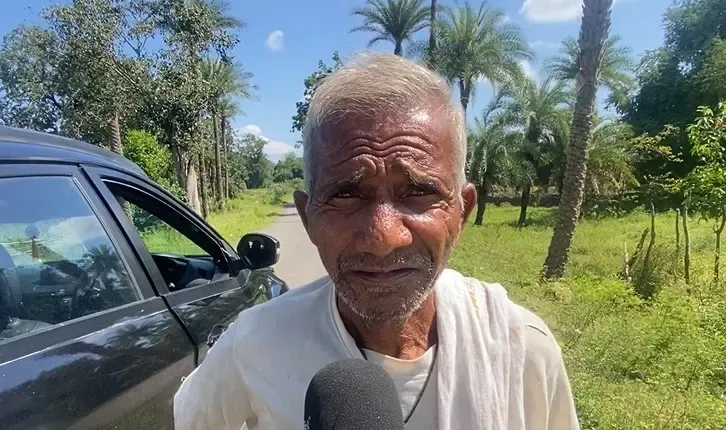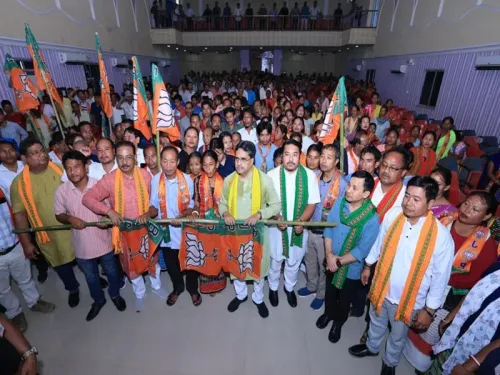How Did Badesetti Become the First Maoist-Free Village in Chhattisgarh?

Synopsis
Key Takeaways
- Badesetti is now the first Maoist-free Gram Panchayat in Chhattisgarh.
- Investment of Rs 1.10 crore for holistic development.
- Resumption of essential services like education and health.
- Active participation of residents in local governance.
- Inspiration for surrounding villages to follow suit.
New Delhi, Oct 25 (NationPress) Once a harbinger of fear and insurgency, Badesetti village in the Bastar region has marked a significant milestone in Chhattisgarh’s history by emerging as the state’s first Maoist-free Gram Panchayat. Previously engulfed in the shadows of Maoist violence, this isolated village is now a beacon of peace, development, and self-sufficiency.
Through the Maoist Rehabilitation Policy, the Panchayat and Rural Development Department has allocated Rs 1.10 crore for comprehensive development initiatives in the village. These funds are being utilized to enhance infrastructure, bolster local governance, and restore essential public services that were disrupted by Maoist activities.
Today, Badesetti stands as a true symbol of transformation. The residents, who once hesitated to venture out after sunset, now actively engage in village development meetings and are adopting digital transactions. With the revival of dormant bank accounts that lay inactive during years of insurgency, the community is embracing Digital India through UPI payments for daily expenses, signaling a small yet powerful step towards confidence and progress.
The Anganwadi center, which had remained closed for nearly three years due to Maoist threats, has now resumed operations. Workers have returned, allowing children to receive early education and nutritional support once again. Government initiatives like the Pradhan Mantri Jal Jeevan Mission and Solar Lighting Projects have provided the community with clean drinking water and reliable electricity. The construction of a Panchayat Bhawan and a primary health center is currently underway, while the Pradhan Mantri Gram Sadak Yojana has established a concrete road linking the village to nearby towns, facilitating easier transport and trade.
A villager remarked, “Yes, the construction work in our Panchayat has been completed, and everything is functioning smoothly now. Previously, the situation was starkly different, but there’s a visible improvement now. Bus services have resumed, electricity has reached every home, and a concrete road connects us to neighboring areas. Development is undeniably taking shape here.”
Another villager expressed relief at the return of peace, stating, “In the past, my entire area was dominated by Maoist influence, but now that presence has completely vanished. There are no signs of any Maoist activity anymore; the region is now entirely free and peaceful.”
Badesetti’s remarkable transformation serves as an inspiration for neighboring villages still grappling with the remnants of extremism. Local authorities believe that the village’s success story can be a blueprint for peace through development in the rest of Bastar.
Officials assert that ongoing investment in education, health, and job creation will ensure this peace endures. From fear to freedom, and from darkness to development, Badesetti has truly become the embodiment of a new, self-reliant Bastar.








